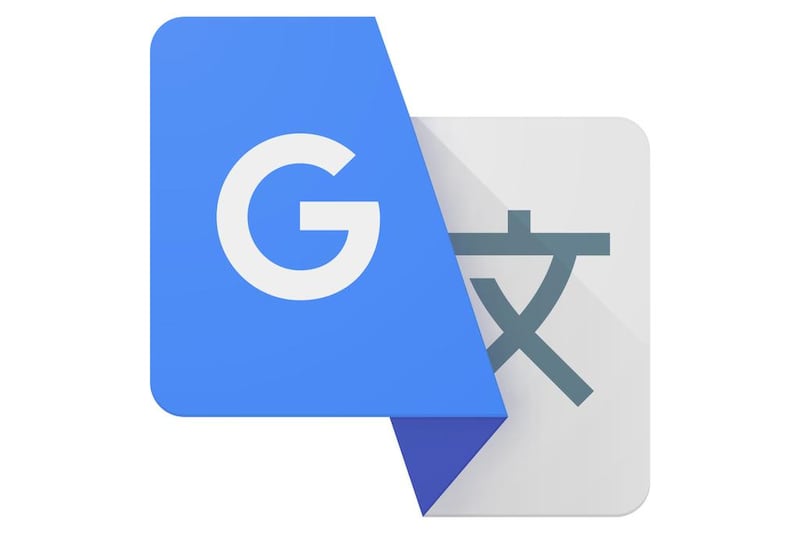ABU DHABI // Translation between Arabic and English is difficult enough – but anyone who has tried to use automated translation realises that this is even more problematic.
So Google’s announcement on Monday that it has greatly improved its Arabic translation will come as a relief to many.
Thousands of Arabic speakers and millions of their phrases have been used in new technology that is capable of translating whole sentences, rather than interpreting text piece by piece and learning over time from the input.
Google’s “neural machine” translation system creates more natural translations, leading to increased fluency and accuracy.
Since last November, the US technology giant has launched its new system for 15 other languages.
The previous translation system, used for the first decade of Google Translate, relied on phrase-based technology.
The old and new systems rely on massive amounts of translation information, but the main difference is in how they apply that data, said Najeeb Jarrar, Google’s product marketing manager for the Middle East and North Africa.
“Neural doesn’t really learn languages as such, but rather it teaches itself how to generate results that match the parallel translations we’ve given it to learn from,” he said.
Maya Mazloum, who teaches Arabic at the Eton Institute, said she has noticed a marked improvement in Google’s translation of an English article into Arabic.
“When I first saw the translation I said ‘wow’,” said Ms Mazloum, who has taught Arabic for nine years.
“I felt that it didn’t need the usual amendments. The order of the words was better and the grammatical endings were matching the gender of the nouns.”
Although the new system will help her students, who regularly use Google Translate, translations still need guidance from native speakers who can check and amend them, she said.
Despite its limitations – especially for colloquial Arabic – the technology is a welcome aid in the classroom, said Ms Mazloum.
But Hani El Imam, owner of Smart Translation, a UAE company, and an Arabic-English translator for 12 years, said the new system has degraded the quality of what he described as an already unreliable service.
Although the new system has improved the grammar, Mr El Imam said he was finding an increasing number of incorrect interpretations of certain words.
“No matter how far you advance the technology, you will never be able to replace human translation, especially with a rich language such as Arabic,” said Mr El Imam, who wrote his thesis for his master’s degree on the incorrect translation of metaphors in the Quran.
He said translation problems arose from linguistic and cultural differences between languages that challenge even the best translators.
“If the leading translators are still translating metaphors in the Quran incorrectly, are you telling me that Google will be able to translate them in the regular language?” Mr El Imam asked. “I doubt it.”
But Mr Jarrar said Google’s translation system was not designed to supplant the incredible nuances of professional translation. “This system can’t translate something sophisticated like a novel, with all its contextual and cultural subtleties,” he said. “But we’ve heard some translators use it for a quick first pass that they can then refine.”
The more Google’s system is used and as it learns from suggestions from the Google Translate community, the technology would continue to improve, said Mr Jarrar.
“This is only the beginning and we expect the quality of the translation to get better,” he said.
_____
Nuances vital to translation:
The new version of Google Translate is an immense improvement of the previous one, translators say.
English version of Arabic text before improvements:
• Muashah art hair novelty, different forms of lyrical poetry in Arabic, among other things, in his commitment to certain rules in technology and its use vernacular language or Aloagamah in Khrjtah, then the strong Batsalh singing.
After improvements:
• Al-Muhash is an innovative poetic art, different from Arabic poetry in many ways, by its adherence to certain rules of technology, its use of Arabic or Arabic in its output, and its strong connection to singing.
However, translators also say that interpreting a text requires an understanding of linguistic nuances beyond the scope of literal translation.
Google Translate version of an excerpt from Khalil Gibran's book Broken Wings:
• I was 18 years old when love opened my eyes with its magical sight, and touched myself for the first time with his fiery fingers. Salma was the dignity of the first woman, who awakened my spirit to her good, and walked ahead of me to the heaven of the upper emotions where the days pass like dreams and the nights pass like weddings.
Salma Karama is the one who taught me to worship beauty in its beauty, and she showed me the secrets of love by turning her back. She sang the first house of the poem of moral life.
Human translation:
• I was 18 years of age when love, with its magical rays, opened my eyes and, for the first time, touched my soul with fiery fingers. Salma Karamy was the first woman to awaken my spirit to beauty and to lead me into a paradise of heavenly emotions, where days gently go by like a dream and nights are alive with the delights of celebration.
With her charm, Salma Karamy taught me to worship at the altar of beauty. Her affections showed me the secrets of love; and hers was the first song of eternal love I ever heard.
tsubaihi@thenational.ae






